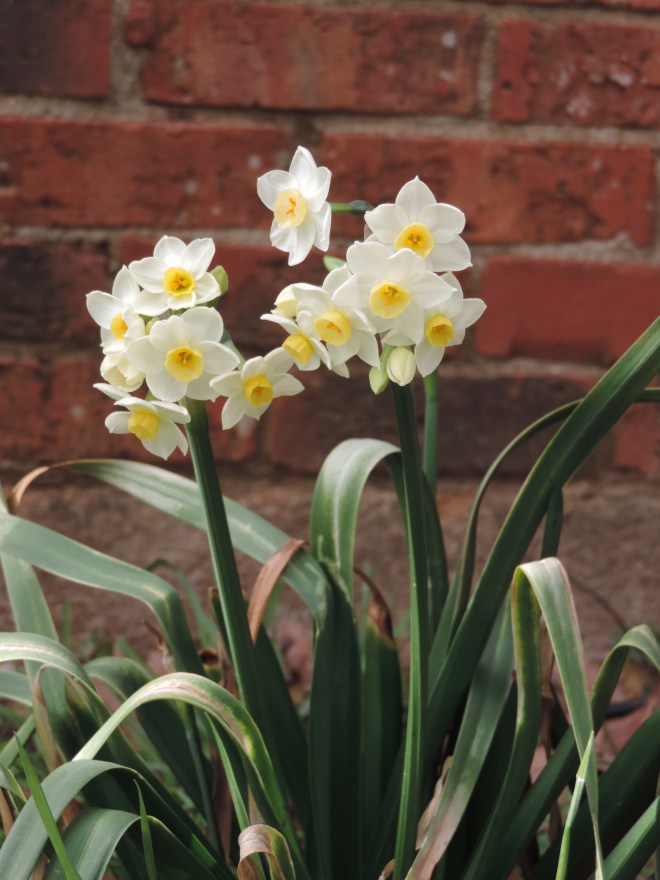
I miss parish ministry. Sometimes, I miss it a lot. And when I stop and allow myself to consider what I am getting to do, I realize how incredibly fortunate I am with the kind of work I am doing. My primary work this past year brought me back to Leadership and Organizational Development, this time, for the Episcopal Church. When I graduated from Seminary and decided I would never, ever, be involved in the Church, much less continue to pursue ordination, I methodically worked through What Color is Your Parachute and landed in the field of training and development. I have finished designing and developing a curriculum for team-based, collaborative leadership in the Episcopal Church. It does not engage the profound theological questions and challenges of our time, but it does give clergy and vestries (the core leaders of a congregation in my denomination) some different ways of working together that are less hierarchical, less turned inwards, and more capable of taking risks on behalf of the Gospel.
We are now at the stage of piloting my work. The Diocese of Alabama has graciously agreed to serve as our first partner in this phase of the work. Over the next months, I will work with three congregations and a couple of people from the Diocese to test and refine my work. A variation of this core curriculum targets seminarians and we are now actively developing a partnership with Virginia Theological Seminary to integrate our 5-day course into their standard curriculum for people on track to be ordained as parish priests. In early March, that work will take me back to Alexandria. We are introducing our work in all kinds of ways across the church so along with my trip to DC, I will also travel to Amelia Island in Florida, and to Philadelphia in the coming weeks.
My colleague and friend, Joe Duggan, and I continue to collaborate in ways that are deeply meaningful to me. Joe has written a book that I will contribute a chapter to. We have a second book concept we are developing as well. Joe is the founder of a knowledge activism organization called Postcolonial Networks and in the next few weeks, I am going to be working on a publication process for an e-book being published by Borderless Press, a part of Postcolonial Networks. Through Joe, I have also gotten to know Stefani Schatz, his wife who is a priest and Canon to the Ordinary (akin to the head of operations) of the Diocese of California. I will be doing some work with her and clergy of the Diocese in San Francisco in March as well.
And finally, I do supply work around the diocese of Alabama. It look like I may be helping out quite a bit during the next few months with the parish of St. Andrew’s in Tuskegee.
It’s a patchwork that sometimes leaves me feeling pulled in a lot of different directions. On the one hand, I am part of an esteemed and traditional organization of the church which means I have things like head shots and a lot of attention to protocol. That work is in constant dialogue in my heart and mind with the challenging, sometimes exhilarating, and often disturbing, questions raised by people who do work in the Postcolonial field. And all of it makes most sense, and I make most sense to my own self, when I get to do parish ministry, even when it is as a supply priest.
I could not have imagined anything like this even a year ago, though by then, I knew the ground was shifting under me. I couldn’t do this work without the farm. The earth –it’s smell, the feel of it between my fingers, the discipline of cleaning up after my chickens and tending to seedlings–keeps me sane.
 When I took my girl to Fort Lauderdale, there was too much traffic and we had too many things to do to get to drive along A1A and see the ocean. I am giving a workshop at a church conference tomorrow and this is the view from my window this afternoon. Earlier today, there was a thick crust of frost on my car and before we took off from the airport in Montgomery, the plane had to be de-iced. Even here, the wind cuts with its chill and I don’t have the clothes to get close to the water. But I can stand on my balcony and hear the whoosh of the waves and every time I look up from my laptop, I watch them rolling into the beach. I have missed the ocean.
When I took my girl to Fort Lauderdale, there was too much traffic and we had too many things to do to get to drive along A1A and see the ocean. I am giving a workshop at a church conference tomorrow and this is the view from my window this afternoon. Earlier today, there was a thick crust of frost on my car and before we took off from the airport in Montgomery, the plane had to be de-iced. Even here, the wind cuts with its chill and I don’t have the clothes to get close to the water. But I can stand on my balcony and hear the whoosh of the waves and every time I look up from my laptop, I watch them rolling into the beach. I have missed the ocean.











